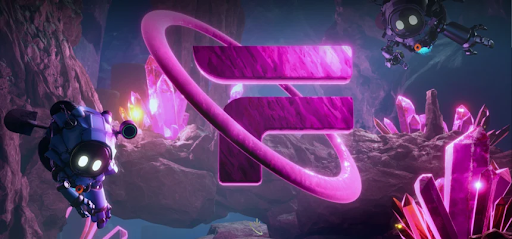Building the metaverse for people, not corporations
To many, the metaverse sounds like a futuristic pipe dream, but not to Futureverse.
The company believes that we’re already living there through our data and must take action to ensure it belongs to us all. The alternative is a repeat of what we’ve seen with the internet — an increasingly corporate-owned space where our data no longer belongs to us and is used by others to make decisions over which we have no control.
According to Futureverse co-founder Aaron McDonald, the metaverse has to be built around communities and on communally owned infrastructure because “without that, you can’t have personal ownership of digital things.
They will always be owned by the person who can switch the data centre off”. So right from the start, Futureverse looked for a technology that would allow the building of genuinely user-centric communities, and found it in blockchain. “We’ve got this new community-owned cloud infrastructure in blockchains. Ownership is the killer use case for it, but how do we make it easy to use?” McDonald recalls.
At the time, blockchain was considered ‘a solution looking for a problem’ and was mainly associated in the public eye with nefarious uses like money laundering. So developing any ideas around making the technology viable would require forming the right partnerships. McDonald credits Callaghan Innovation with being a valuable partner, with “a willingness to see past the public rhetoric and into the idea that something innovative was going on”.
“There was an open door to have a conversation about what was really unique about this innovation, how it wasn’t a flash in the pan, and how we were thinking about solving the problems around it.”
Aside from that support, the company also received funding through the R&D Tax Incentive (RDTI), which doesn’t require claimants to prove the commercial viability of the research being funded. This was vital for Futureverse because it allowed the company to explore different aspects of what was then a new technology.
Corporations worry about allowing people to freely move their data around online because if they do that, then who owns the customer? Our answer has always been that the customer should own the customer.
"“The RDTI was really helpful because, at the time, it was such a new field, and it was hard to understand how you could commercialise that research.
“We had the flexibility to explore many different research lines, which we did, and we ended up building technology off that work, getting patents off it, with the freedom to figure out the commercialisation of it down the track. All that research helped us get to the point we’re at now.”
Futureverse now proudly occupies a spot as the world’s first Māori-founded Unicorn. During its last capital raise earlier this year, Futureverse was valued at over $1 billion, which speaks to the importance of the company’s approach to the metaverse and the expectation that, as people become more aware of the consequences of not owning their data, Futureverse’s community-owned infrastructure will attract more and more users.
While others might see the geographical isolation of Aotearoa as a stumbling block, McDonald asserts that Futureverse couldn’t have been born elsewhere.
“I think because we’re a smaller country and somewhat isolated, we have a different mentality when it comes to working together. And if you look at our company values, they are closely aligned to ideas that come out of te ao Māori, where it’s more about the collective than the individual.”
The company is committed to being an exemplar for other Māori founders and has already supported several through its incubation acceleration programmes. McDonald also has sound advice for other innovators on their way up. “Focus on communities and solving real problems, be really authentic in what you’re trying to build, stick your neck out and take risks, and be persistent.”
At a glance
- Founded as Centrality in 2016, rebranded as Futureverse in 2022
- Co-founded by Aaron McDonald (CEO), Shara Senderoff, Marco Brondani, Daniel Gillespie
- Based in Auckland
- Creating the foundation for a human-centric, immersive internet (the metaverse)
- Valued at more than $1 billion as of June 2023
- Visit website
Callaghan Innovation impact
- Funding for R&D without the need to prove its commercial viability, through the RDTI
- Support for the potential of blockchain despite the prevailing view (early days)

